Life
Sign up for our newsletter
We summarize the week's scientific breakthroughs every Thursday.
-
 Animals
AnimalsFire ants build little syphons out of sand to feed without drowning
To escape a watery death, some fire ants use build sand structures that draw the insects’ sugary, liquid food out of containers and to a safer place.
-
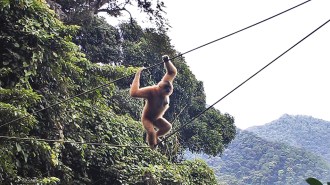 Animals
AnimalsA rope bridge restored a highway through the trees for endangered gibbons
When critically endangered Hainan gibbons started making dangerous leaps across a new gully, researchers came up with an alternative route.
-
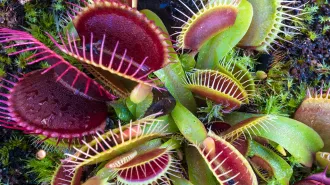 Plants
PlantsHow Venus flytraps store short-term ‘memories’ of prey
Glowing Venus flytraps reveal how calcium buildup in the cells of leaves acts as a short-term “memory” that helps the plants identify prey.
-
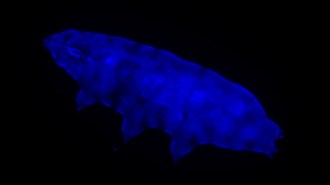 Animals
AnimalsGlowing blue helps shield this tardigrade from harmful ultraviolet light
Tardigrades have a newly discovered trick up their sleeve: fluorescence.
-
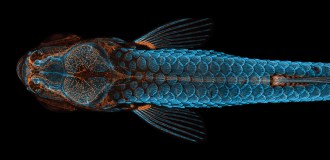 Life
LifeA glowing zebrafish wins the 2020 Nikon Small World photography contest
The annual competition features snapshots that use microscopy to reveal some of Earth’s smallest hidden marvels.
-
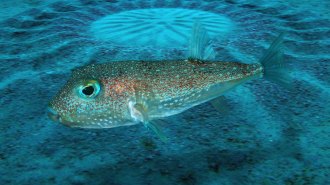 Animals
AnimalsPufferfish may be carving mysterious ‘crop circles’ near Australia
In 2011, scientists discovered that tiny pufferfish were sculpting Japan’s underwater “mystery circles.” Now, more circles have emerged in Australia.
By Jake Buehler -
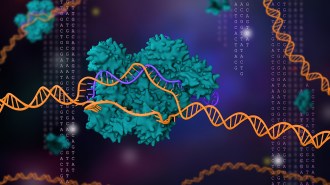 Genetics
GeneticsGene-editing tool CRISPR wins the chemistry Nobel
A gene-editing tool developed just eight years ago that has “revolutionized the life sciences” nabbed the 2020 Nobel Prize in chemistry.
-
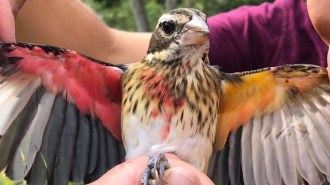 Animals
AnimalsThis rare bird is male on one side and female on the other
Researchers at Powdermill Nature Reserve near Pittsburgh spotted a bird with pink male coloring on half of its body and yellow female hues on the other.
-
 Neuroscience
NeuroscienceYour dog’s brain doesn’t care about your face
Comparing brain scans of people and pups shows that faces hold no special meaning to the brains of dogs, a new study suggests.
-
 Health & Medicine
Health & MedicineHepatitis C discoveries win 2020 Nobel Prize in physiology or medicine
The 2020 medicine Nobel recognizes work that found that a novel virus was to blame for chronic hepatitis and led to a test to screen blood donations.
-
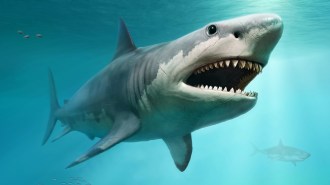 Paleontology
PaleontologyCannibalism in the womb may have helped megalodon sharks become giants
The ancient sea terror Otodus megalodon may have grown to at least 14 meters long thanks to a firstborn pup’s predatory behavior, some researchers say.
-
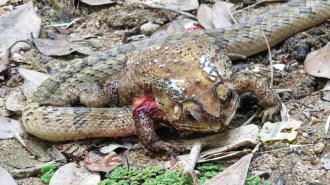 Animals
AnimalsThis snake rips a hole in living toads’ stomachs to feast on their organs
A particularly gruesome way to kill may help small-banded kukri snakes avoid toxins secreted from the neck and backs of some toads.